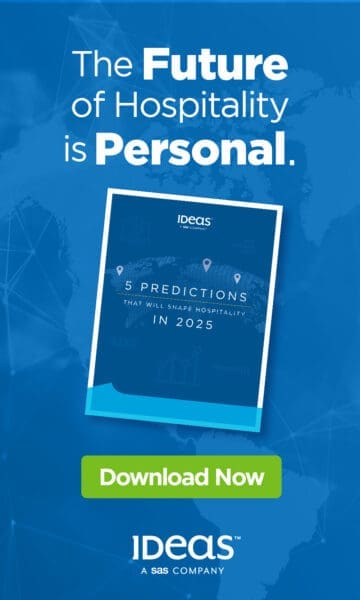We compared in an initial study the standards set by the various hotel star-rating agencies in the United Kingdom, UAE, Turkey, Germany, Thailand, Switzerland, and the Philippines and discovered phenomenal insights. Further, six countries were also looked at, with very similar results to the initial seven countries.
We all know that each country has its own national Hotel Quality Standards and that there is nothing such as global unification, which makes it nearly impossible for corporates to remain in line with compliance guidelines. Each country has also a different history to tell, and a slightly different focus, which was considered in the comparability study.
Global hotel brands have a positive impact on setting standards. The reality is, the industry provides in general, more Risk Control Measures than what the hotel star-rating agencies request. Looking at it globally, most catalogues cover only 4 – 12 % of the common Safety & Security best practices.
We call the Global Hotel Security Standards. Fact is, countries that are government regulated, have far more mandatory Risk Control Systems compared to countries where an association is the driving force. Safety & Security measures can cost money and associations may try to protect the interests of the hoteliers. This is not always in favour of the necessary risk mitigation process and it is in my opinion also a lack of guidance.
Thailand/Abu Dhabi/Germany/Switzerland
While Turkey or Thailand talk too much about Fire Safety details, the system in Abu Dhabi, for instance, has a fair and realistic balance between Fire Safety and Security. You can clearly tell by the documentation that safety and security professionals were involved when the rating catalogue was first put together in 2013. It is a young system compared to the traditional automobile associations. However, taking the global risks into the equation, and comparing it for example with Germany, Switzerland or UK, you will notice that the hotel security standards in Germany and Switzerland, does not represent the actual safety & security standard in the country. The hotel classification is rather incomplete. Most hotels in this region exceed the standard of the associations, which is in my opinion a lost opportunity.
United Kingdom
The AA (Automobile Association) hotel classification in the United Kingdom is at first sight complex and not transparent. Therefore, it is not suitable to compare it directly with other countries. The hotel classification in the UK, has in my opinion efficient safety & security standards in place. It does not appear that way nor are they known as standards. What makes it unique is, that it is one of the few countries that refers to the Fire and Health & Safety legislation. The legislation expects from hotels to have Risk Control Measures in place that are reasonably practicable for each individual property. This makes sense as:
¥ Each property is built differently,
¥ Is in a different environment,
¥ Has a different clientele with different behaviour
¥ Has a different risk profile
The UK has very high global risks, but when managed properly this system encourages hotels to adopt to changes. The chance to succeed is therefore higher and it makes hotels in this country safer.
Philippines
Surprisingly the Philippines have top safety and security standards. Their hotel classification is government regulated, straight-forward and is the only country that requests the following:
¥ Risk Assessments,
¥ CCTV,
¥ Mentions security guarding,
¥ Makes a statement about first aid training,
¥ Has a strong focus on security at the same time.
Turkey
Worldwide, most hotel classifications are vertical systems. This means, they are mandatory and discretionary standards. Not in Turkey. Turkey works with a horizontal rating system, which makes it vulnerable. For example, should a hotel not meet some fire safety or security criteria, it can make it up with just displaying national or regional handcraft products or an ice machine on the floor. The hotel classification (1-5 stars) does not indicate the level of safety and security and whether this is sufficient for the region. The relationship between Manpower, Hardware and Policy Risk Control Systems in Turkey is out of proportion – Guarding 9% / Hardware 91% / Policy 0%. Thailand is, for instance, better off – Guarding 50% / Hardware 39% / Policies 11%.
Interesting Key Facts worldwide
¥ The Department of Tourism certifies in most countries, while in other countries it is the Hotel Associations or Automobile Clubs that assess the hotel quality standards.
¥ Less than > 35% talk about Risk Assessments and Audits, referring to a Risk Management Cycle, the legislation in Health & Safety, or tell the customer how Security is managed.
¥ Traditional hotel classification systems have not adopted to changes. For example, CCTV-cameras are a standard in Asian and Middle East countries but for some reason, not required in European countries where there is a much higher crime rate.
¥ PCI-compliance (security for electronic payment) and Security Awareness Trainings or Security Training in general, is surprisingly not mentioned at all.
¥ In all hotel classifications the proportion of the Safety & Security category is somewhere between 1.9 % – 8.2 %. Germany has the lowest and the Philippines the highest proportion.
¥ Risk Control Measures on hotel bedroom doors are clearly identified by the players in the market. Peep-hole (also known as spy-hole), door chain/bar, electronic door lock, anti-panic lock and an automatic door closing mechanism, is a standard and best practice in most hotels nowadays. None of the hotel rating agencies updated their hotel classification to cover all 5 global standards at the same time. Germany covers only 33%, Philippines and UAE 67%, Turkey 50%, UK does not mention it at all.
¥ The only thing all countries have in common is the in-room safe.
Conclusion:
I would like to encourage Hotel Associations to review their hotel classification systems and seek professional advice. A hotel classification system has the purpose to guide and to maintain quality. Today we are living in a world with constant changes, and a modern hotel classification system must be able to adopt to it, and provide the best possible support for the industry.
For the hospitality industry this means, it is important to keep a focus on the global risks that can have an impact on the business and safety of people. The remaining question is the competency of the hotel inspector and whether he or she is actually qualified in auditing safety & security standards. None of the systems talk about the qualification of the inspectors. I urge travelers to not use the hotel classification when assessing travel risks as it is not a reliable tool to use.
It is not about the quantity of Risk Control Measures/Systems. At the end of the day all systems can fail when they are not effectively managed and not resilient enough. We find that the actual risks are often underestimated.



















